 The European Union (EU) Structural Funds are used to implement structural policies aimed at reducing disparities in the economic and social development of EU countries and improving the competitiveness of less developed regions through financial instruments. The financial instruments are implemented through the Structural Funds, which are distributed in accordance with the funding provisions of the programs.
The European Union (EU) Structural Funds are used to implement structural policies aimed at reducing disparities in the economic and social development of EU countries and improving the competitiveness of less developed regions through financial instruments. The financial instruments are implemented through the Structural Funds, which are distributed in accordance with the funding provisions of the programs.
How non-price instruments can help increase energy efficiency at the right time
Project Title – How non-price instruments can help increase energy efficiency at the right time
Application Code – No 01.2.2-LMT-K-718-02-0007
Research Group – dr. Andrius Kažukauskas, dr. Jūratė Jaraitė - Kažukauskė, dr. Vincentas Giedraitis, dr. Tomas Baležentis, dr. Rimvydas Baltaduonis, dr. Marye Fissha Asmare
Project Goal – The goal of this project is to bring the discussion on inefficiencies in residential energy use from theory to practical application using innovative technical methods and insights from the field of behavioural economics. This goal will be reached by accomplishing two main tasks. The first task is to analyse the issue of energy inefficiency in households, focussing on a lack of awareness and relevant information about energy use. The second task is to study Lithuanian households’ energy and financial literacies, their interaction, factors, and ways of increasing these literacies.
Project Summary – This project will implement several experiments that will help answer the question of how the provision of different types of information affects the energy consumption of Lithuanian households. This information will be updated in real time and transmitted to households via smartphones and other portable electronic devices. JSC Lietuvos Energija will provide the real-time electricity consumption data from the new generation of multifunctional electronic electricity meters required for the implementation of these experiments. Given the rapid development of these advanced meters and other information technology, project research will show whether this non-cost-effective approach can effectively lead to energy savings. As the experiments will generate frequent data, it will be possible to find out whether various non-cost interventions affect energy consumption during peak and off-peak electricity demand hours. The knowledge gained from this project can contribute to the provision of tangible value-added services to households and the energy sector as a whole. This project will provide valuable information on the importance of non-cost-effective measures delivered with the help of innovative high technologies to reduce valuable resource consumption.
Funding Resource – This project has received funding from European Regional Development Fund (project No 01.2.2-LMT-K-718-02-0007 ) under grant agreement with the Research Council of Lithuania (LMTLT).

Reassessment of the Optimum Currency Area in the persistently heterogeneous European Union (Euro4Europe)
Project Title – Reassessment of the Optimum Currency Area in the persistently heterogeneous European Union (Euro4Europe)
Application Code – No 09.3.3-LMT-K-712-01-0123
Principal Investigator – Chief researcher dr. Svatopluk Kapounek
Research Group:
Chief researcher dr. Jesus Crespo Cuaresma
Chief researcher dr. Jarko Fidrmuc
Chief researcher dr. Peter Huber
Researcher dr. Povilas Lastauskas
Researcher dr. Dmitrij Celov
Chief researcher doc. dr. Laimutė Urbšienė
Researcher dr. Rima Rubčinskaitė
Project Goal – the main goal of this project to improve the qualifications of researchers through high-level research in the field of business cycle synchronization, promoting the exchange of scientific ideas on the impact of European integration on business cycle asymmetries, as well as providing empirical evidence on the impact of European integration on business cycle asymmetries. The project will promote scientific cooperation with researchers from prestigious foreign research institutions - Vienna University of Economics and Business, Austrian Institute for Economic Research, Mendel University in Brno, and Zeppelin University in Friedrichshafen.
Project Summary – the project aims to improve the qualifications of researchers through high-level research. The project will carry out a business cycle synchronization study using 3 empirical strategies: a) analysis of national business cycle synchronization; (b) a study on economic integration and the transmission of macroeconomic shocks; (c) a study on the integration of regional business cycles. The project will seek to examine whether there is evidence to support the view of proponents of endogenous optimal currency space theory that integration increases or decreases asymmetries in business cycles (Frankel and Rose, 1998) (Krugman, 1993). The results of the project's research will: a) reassess the evolution of business cycle synchronization in Europe through equal access and at different territorial levels (national, regional); (b) provide empirical evidence to proponents of endogenous theories of an optimal currency area that integration increases or decreases asymmetries in business cycles; (c) fill the gap in business cycle synchronization measurement concepts. The regional research level will contribute to a better understanding of microconvergence from the perspective of a flexible and sustainable economic and monetary union in Europe.
Project Implementation – January 8th, 2018 – January 7th, 2022
Contact Person –
Project Results
| Published articles (2020): |
|
Title: Fragility and the effect of international uncertainty shocks |
|
Title: Macroeconomic impact of Basel III: Evidence from a meta-analysis |
|
Title: Meta-Analysis of the New Keynesian Phillips Curve in Developed and Emerging Economies |
| Published articles (2019): |
| Title: Spillovers from US monetary policy: evidence from a time varying parameter global vector autoregressive model Journal: Journal of the Royal Statistical Society: Series A (Statistics in Society) (ABS reitingas 3) Link: https://rss.onlinelibrary.wiley.com/doi/pdf/10.1111/rssa.12439 |
| Title: Historical decoupling in the EU: Evidence from time-frequency analysis Journal: International Review of Economics and Finance (ABS reitingas 2) Link: https://www.sciencedirect.com/science/article/pii/S1059056018303113 |
| Title: Macroeconomic impact of Basel III: Evidence from a meta-analysis Journal: Journal of Banking and Finance (ABS reitingas 3) Link: https://www.sciencedirect.com/science/article/pii/S0378426618301171 |
Funding Resource – this project has received funding from European Social Fund (project No 09.3.3-LMT-K-712-01-0123) under grant agreement with the Research Council of Lithuania (LMTLT).

Model for Assessing the Economic Behavior and Credit Risk of Participants in Loan Comparison Platforms Like Fintech in the Context of COVID-19 (Acronym: PPP_EKRVM)
Project No - 13.1.1-LMT-K-718-05-0010
Project Title - Model for Assessing the Economic Behavior and Credit Risk of Participants in Loan Comparison Platforms Like Fintech in the Context of COVID-19 (Acronym: PPP_EKRVM)
Research Project Manager - Rasa Kanapickienė
Other Main investigators - Greta Keliuotytė-Staniulėnienė, Airidas Neifaltas, Renatas Špicas, Deimantė Teresienė
Project Implementation Period – 04/11/2021 – 01/09/2023
Project Summary: According to recent research, the spread of COVID-19 and the introduction of quarantine restrictions in many parts of the world have had a negative impact on the fulfillment of obligations by individuals and legal entities and have significantly increased the share of non-performing loans in creditors' portfolios. Some creditors have tightened their credit risk assessment criteria for both private and business customers. In order to mitigate the impact of the crisis on short-term business solvency, various countries, including Lithuania, have approved economic stimulus programs. However, these measures did not solve the problem of access to loan funds for individuals. Decreased access to credit is one of the factors exacerbating inequality and financial exclusion, accelerating the spread of COVID-19.
Aim of the project: To create, test and demonstrate in a real environment a model of economic behavior and credit risk assessment (PPP_EKRV) of participants of loan comparison platforms, which would contribute to solving the problem of borrowing opportunities for individuals under COVID-19 conditions in Lithuania.
Tasks:
1. After examining the impact of the COVID-19 pandemic on the consumer credit system and the role of loan comparison platforms (PPPs) as Fintech in addressing the availability of credit, develop, test and simulate a realistic, research and technology-based PPP_EKRV model consisting of a) (b) the subsystems for assessing the economic behavior and credit risk of borrowers and (c) the assessment of the effectiveness of PPPs themselves.
2. Test and demonstrate (verify operation) the PPP_EKRV prototype in a real operating environment, if necessary.
The developed prototype will contribute to solving the problem of borrowing opportunities for individuals under the conditions of COVID-19 in Lithuania. This is the first time a prototype has been developed. For the first time, (i) an assessment of the economic behavior and credit risk of PPP participants shall be conducted and performed; (ii) quantifying the impact of loan comparison platforms in addressing borrowing opportunities for individuals.
Funding Resource: The project is funded from European Regional Development Fund under the measure 01.2.2- LMT-K-718 “ Research Projects Implemented by World-Class Researcher Groups Aimed at Developing Results in Line with R&D Topics Relevant to the Economic Sectors which could then be Commercialized”. Funded as European Union's measure in response to Cov-19 pandemic.
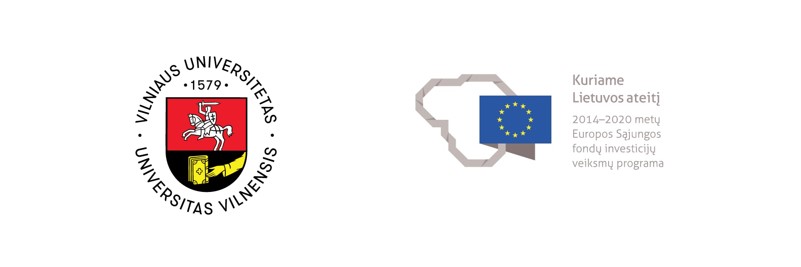
Development of an online learning platform with a learning motivation system based on game design elements and „blockchain“ technology
Project Title – Development of an online learning platform with a learning motivation system based on game design elements and „blockchain“ technology
Application Code – No J05-LVPA-K-04-0133
Research Group – prof. dr. Vytautas Dikčius, prof. dr. Sigitas Urbonavičius, asist. dr. Karina Adomavičiūtė, asist. dr. Dalia Čiupailaitė, doc. dr. Degutis Mindaugas, j. asist. Ignas Zimaitis.
Project Goal – The goal of the project is to carry out research on learning motivation and create an online learning platform with an integrated learning motivation system, game design elements, and „blockchain“ technology.
Project Summary – The project develops an innovative next-generation online learning platform with blockchain technology, based on a system for promoting user motivation, tracking achievements, and integrated social communication and mutual assistance functionalities. The platform developed by JSC „Bitdegree“ will be the world's first online learning platform based on „blockchain“ technology, the main focus of which will be on developing skills and competencies in the digital economy. The platform will teach programming languages, website development, online business intricacies, computer game development, and other digital sciences relevant to retraining market needs and important for modern employers.
Funding Resource – this project has received funding from European Regional Development Fund (project No J05-LVPA-K-04-0133)
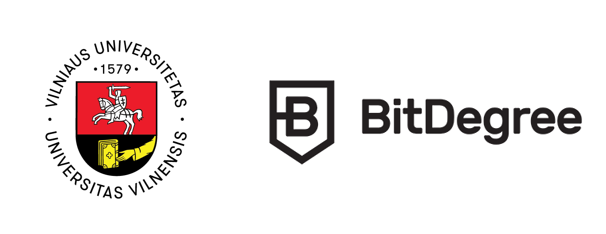
Personal Pricing, Privacy And Search In Retail Markets
Project Title - Personal Pricing, Privacy And Search In Retail Markets
Application Code – No 09.3.3-LMT-K-712-18-0001
Research Group - dr. Vaiva Petrikaitė
Project Goal – the main goal of this project is to investigate consumer incentives to store personal information in retail markets where personal pricing and information asymmetries prevail and to promote the exchange of research experience and knowledge between researchers and the host institution.
Project Summary – by letting sellers of goods and services know more about themselves, the consumer can not bother and look for the desired purchases: the sellers themselves will make tailor-made offers. Unfortunately, the product offered, while meeting the needs of the consumer, will often be expensive. Hence, the buyer may choose to store personal data and, without receiving personal offers, engage in time- and effort-intensive low-cost searches for the required item. During the implementation of this project, the researcher will analyze such consumer choices in the retail markets of goods and services and formulate recommendations on how to improve the efficiency of these markets and increase consumer welfare. The researcher will become a member of the academic community of Vilnius University, share the research experience gained in academic institutions in Spain and the Kingdom of the Netherlands, and contribute to the development and strengthening of international academic relations. At the same time, she will gain experience in the development and improvement of study programs and establish contacts with representatives of local businesses and other organizations. These steps will ensure that in the future the researcher will carry out successful high-level research projects, in which she will work together with the academic community of Vilnius University and other Lithuanian higher education institutions, as well as representatives of business and state institutions.
Funding Resource - this project has received funding from European Social Fund (project No 09.3.3-LMT-K-712-18-0001 ) under grant agreement with the Research Council of Lithuania (LMTLT)

Implementation of a blockchain-based payment system for encouraging the use of tourism services after the COVID-19 pandemic.
Project No - 13.1.1-LMT-K-718-05-0006
Project Title - Implementation of a blockchain-based payment system for encouraging the use of tourism services after the COVID-19 pandemic.
Research Project Manager - Alfreda Šapkauskienė
Other Main investigators - Aida Mačerinskienė, Kęstutis Driaunys, Saulius Masteika
Project Implementation Period – 04/11/2021 – 01/09/2023
Project Summary: The aim of the project is to explore the possibilities of implementing a block-based billing system to promote the use of tourism services after the COVID-19 pandemic.
The creation of a blockchain as one of FinTech's innovations for cryptographic currencies has increased the efficiency of payment transactions, providing new opportunities and a competitive advantage for citizens and business organizations in all countries. The project examines the readiness of service providers and service users in the tourism sector most affected by the pandemic to use innovative billing-based payment tools. In order to put the theoretical discussion into practice, experimental research in the FinTech laboratory will be used to deepen research on improving transaction speed, two-way channel technology solutions, testing of different cryptographic currencies and the application of small settlements in the tourism sector. The project develops a prototype of a technical solution for a block-based mobile virtual currency payment application and implements and tests it in a tourism service company.
Funding Resource: The project is funded from European Regional Development Fund under the measure 01.2.2- LMT-K-718 “ Research Projects Implemented by World-Class Researcher Groups Aimed at Developing Results in Line with R&D Topics Relevant to the Economic Sectors which could then be Commercialized”. Funded as European Union's measure in response to Cov-19 pandemic.

Changes in the economic structure, efficiency of economic sectors and increasing productivity
Project Title – Changes in the economic structure, efficiency of economic sectors and increasing productivity
Application Code - 09.3.3-LMT-K-712-19-0090
Research Group – dr. Giedrė Dzemydaitė (trainee), prof. dr. Algirdas Miškinis (trainee supervisor)
Project Goal – To improve the scientific qualification of a young researcher through practical scientific activities aimed at assessing the efficiency of economic sectors, identifying the manifestations of unproductivity in the structure of the economy and submitting proposals for their solution.
Project Summary –In order to achieve this goal, it is planned to raise the scientific qualification of post-doctoral research fellow to carry out high-level scientific research, to analyze the applicability of methods for assessing efficiency of economic sectors, combining nonparametric efficient frontier methods and neural networks, to apply the proposed methodology for identifying inefficiencies in the economic structure of the EU countries and regions, and to give suggestions for increasing productivity and developing smart specialization. Implementation of the project expands scientific knowledge in the areas of structural changes in the economy, evaluation of efficiency of economic sectors (specializations) and productivity growth by analyzing national and regional economies. The results of the research would be relevant to the EU and national industrial policy makers to support decisions on smart specialization and sectoral policies.
Funding Resource - This project has received funding from European Social Fund (project No 09.3.3-LMT-K-712-19-0090) under grant agreement with the Research Council of Lithuania (LMTLT).

Development of climate-smart agriculture in the European Union: integrated assessment and convergence analysis
Project Title – Development of climate-smart agriculture in the European Union: integrated assessment and convergence analysis
Application Code - 09.3.3-LMT-K-712-19-0086
Research Group – dr. Mangirdas Morkūnas (trainee), prof. dr. Tomas Baležentis (trainee supervisor)
Project Goal – to assess and propose ways to improve the convergence of climate-smart agricultural development in old and new EU Member States (including between these groups).
Project Summary – A detailed analysis of scientific literature and legal-normative documents will be used to develop a system of indicators for smart agriculture in terms of climate change. The selection of indicators will be carried out by means of a survey of experts consisting of researchers and employees of the Lithuanian Ministry of Agriculture. Indicator weights will be determined both by subjective methods using AHP (Analytic hierarchy process) or BWM (Best-Worst Method) techniques and by objective weighting methods such as entropy or ex-aequo techniques. The level of development of smart agriculture in terms of climate change in the EU Member States will be assessed using at least three multi-criteria decision-making methods. Possible alternatives: SAW (Simple Additive Weighting), TOPSIS (Technique for Order Preference by Similarity to an Ideal Solution), WASPAS (Weighted Aggregated Sum Product Assessment), MULTIMOORA (Multi-Objective Optimization on the basis of Ratio Analysis plus full multiplicative form) , VIKOR (Vlse Kriterijumska Optimizacija Kompromisno Resenje). The exact DSP methods are selected according to the structure of the data array. Convergence measurement will be performed using different scientific approaches (δ, β, club convergence) and using appropriate econometric models. This will create a framework to ensure the convergence process towards climate-smart agriculture in the EU. The survey will use FADN (Farm Accountancy Data Network) and Eurostat data supplemented by indicators of environmental impact (Global Footprint Network) and general public wealth (Inclusive Wealth).
Funding Resource - This project has received funding from European Social Fund (project No 09.3.3-LMT-K-712-19-0086) under grant agreement with the Research Council of Lithuania (LMTLT).

The fiscal-monetary policy nexus in post Covid-19 euro area
Project Title – The fiscal-monetary policy nexus in post Covid-19 euro area
Application Code – 09.3.3-LMT-K-712-23-0194
Research Group – Dr. Linas Jurkšas
Project duration – 2021.07.01-2023.06.30
Internship supervisor - Dr. Deimantė Teresienė
Project Goal – Raising the scientific qualification of the research fellow in the context of the study on the fiscal-monetary policy nexus in the euro area following the COVID-19 pandemic.
Project Summary – The main research idea is to analyse the bilateral linkages of monetary and fiscal policies before and after the Covid-19 pandemic in the euro area. The unprecedented increase of sovereign debt in euro area member states and other advanced economies during the recent non-war period has made economists re-evaluate the motives of such increase. This ballooning of sovereign debt has been accompanied by the reduction of policy rates to the levels close to 0% as well as the implementation of non-standard monetary policy measures, including the purchases of sovereign debt by central banks. The Covid-19 crisis led to the further substantial increase of sovereign debt in tandem with an increase of central bank’ debt holdings. Efforts by governments and central banks to stabilize the economy may have changed their traditional response functions and decision-making processes. Thus, the research would be split into two parts: one focusing on monetary policy reaction function, while second one – on fiscal policy side. The study would address the issue of the unique institutional framework in euro area, i.e. homogenous formulation of monetary policy and heterogeneous conduct of fiscal policies among individual euro area member states. The results of the research could be used by the academic society, market analysts and traders as well as both fiscal and monetary policymakers who want to improve their decision making processes.
Funding Resource – European Union Funds’ Investment operational programme 9th priority “Educating the society and strengthening the potential of human resources” measure No. 09.3.3-LMT-K-712 “Development of scientific competence of researchers, other researchers, students through practical scientific activities”
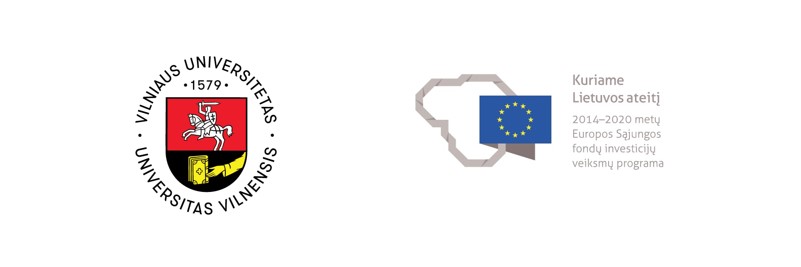
What can we learn from a medium-scale estimated HANK model?
Project Title – What can we learn from a medium-scale estimated HANK model?
Application Code - 09.3.3-LMT-K-712-19-0158
Research Group – dr. Guillermo Hausmann Guil (trainee), dr. Patrick Grüning (trainee supervisor)
Project Goal – To improve the scientific qualification of a researcher and to solve and to estimate a medium-scale New-Keynesian model with heterogeneous agents (HANK).
Project Summary - Medium-scale New-Keynesian models are widely used by policy-makers, financial institutions, and academic researchers to study macroeconomic fluctuations and to provide quantitative estimates of the impact of fiscal and monetary policies on the macroeconomy. However, the vast majority of these models builds on the Representative Agent (RA) framework, so that key features of modern economies (income and wealth inequality, portfolio composition, credit and liquidity, unemployment risk) are absent in such models. In this research project the main aim is to solve and estimate a medium-scale New-Keynesian model with Heterogeneous-Agents (HANK) that allows all the previous features to play a key role in determining business-cycle fluctuations. The interaction will be studied between household inequality and macroeconomic shocks, and the model will be used to test whether many of the modelling features routinely included in medium-scale models (with the only purpose of matching macroeconomic data) are consistent with the observed income and wealth distribution.
Funding Resource - This project has received funding from European Social Fund (project No 09.3.3-LMT-K-712-19-0158) under grant agreement with the Research Council of Lithuania (LMTLT).

Counterparty credit risk assessment in the context of the COVID-19 pandemic
Project No - 09.3.3-LMT-K-712-22-0365
Project Title – Counterparty Credit Risk Assessment in the Context of the COVID-19 Pandemic
Research Project Manager: dr.Deimantė Teresienė
Project Participant: Beatričė Gudavičiūtė
Project Implementation Period: 03/11/2020 – 30/04/2021
Project Summary – The goal of this project is to develop a valuation model, after examining the theoretical aspects of counterparty credit risk, which would support risk management decisions in COVID-19 pandemic situation and would also benefit risk management decisions during other economic and financial crises..In the current conditions of the COVID-19 pandemic , credit risk assessment has become a serious challenge for many financial institutions and businesses. Both central banks and other financial institutions have faced the difficult task of reconciling the level of credit risk they take with the need to boost the country’s economy in the context of the impact of the COVID-19 pandemic. The European Central Bank has taken steps to manage credit risk in order to provide an economic stimulus mechanism. The Eurosystem central banks have also taken steps to implement local stimulus measures. Counterparty credit risk assessment is crucial in this context, as it determines the extent to which a country's or region's economy will be able to absorb funds, which would help to repel the impact of the COVID-19 pandemic on both the business segment and the country's financial stability. The rapid downgrading of corporate and country credit ratings by credit rating agencies has significantly reduced the ability of central banks to contribute to economic stimulus through monetary policy measures in the context of the COVID-19 pandemic. There is a strong need to develop new credit risk assessment models, especially for counterparty credit risk, and this proposed research would make a significant contribution to solving practical problems and, in particular, to developing young researchers' competencies in risk management decisions in difficult crisis situations.
This project has received funding from European Social Fund (project No 09.3.3-LMT-712-22-0365) under grant agreement with the Research Council of Lithuania (LMTLT).
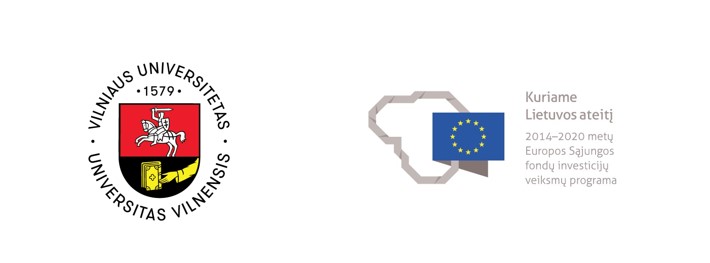
The role of Bitcoin as an investment asset in economic policy uncertainty (COVID - 19)
Project No – 09.3.3-LMT-K-712-22-0334
Project Title – The Role of Bitcoin as an Investment Asset in Economic Policy Uncertainty (COVID - 19)
Research Project Manager: dr. Alfreda Šapkauskienė
Project Participant: Gustė Statulevičiūtė
Project Implementation Period: 03/11/2020 – 30/04/2021
Project Summary – The goal of this project is to investigate the role of Bitcoin as an investment asset in the economy in the face of the global crisis - COVID - 19. The results of this project investigation will deepen the scientific and practical knowledge of investors about the potential of virtual currencies, specifically Bitcoin, which has the largest market capitalization, (not) to become a safer alternative investment asset during economic crises. This project will carry out activities such as the analysis of the scientific literature, the importance of the scientific problem, for the justification of research variables and empirical research methods; based on the analysis of the scientific literature, the research methodology is developed; primary research data is collected; after the research, in accordance with the established research methodology, the research results, conclusions and recommendations are presented in the research activity report; the results of the research are also presented at the student scientific conference. The project aims to provide confirmatory results that Bitcoin cannot become a safe investment asset in the face of COVID - 19 and other turbulences that contribute to global economic uncertainty.
This project has received funding from European Social Fund (project No 09.3.3-LMT-712-22-0334) under grant agreement with the Research Council of Lithuania (LMTLT).
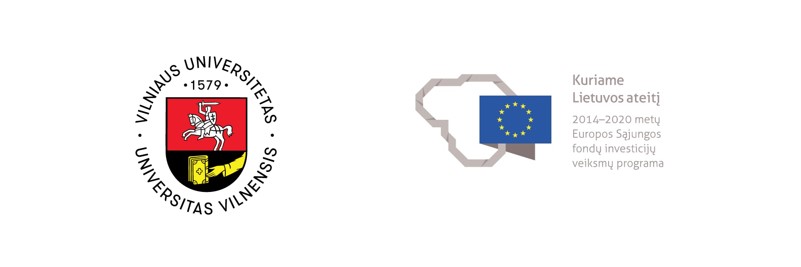
The Evaluation Of The Level Of Application Of Strategic Management Accounting Instruments In Lithuanian Companies
Project No – 09.3.3-LMT-K-712-22-0182
Project Title – The Evaluation Of The Level Of Application Of Strategic Management Accounting Instruments In Lithuanian Companies
Research Project Manager: dr. Daiva Tamulevičienė
Project Participant: Kamilė Medeckytė
Project Implementation Period: 03/11/2020 – 30/04/2021
Project Summary – The goal of this project is to improve the student's scientific qualification by carrying out practical scientific activities, exchange of scientific ideas, promoting the development of scientific communication. The project aims to promote the student's readiness to conduct scientific research and improve scientific qualification by organizing and conducting research on the level of application of strategic management accounting instruments in Lithuanian companies, summarizing and evaluating research results and presenting them to the academic and scientific community. The uncertain and changing business situation becomes a precondition for the emergence of a new direction of management accounting - strategic management accounting. Strategic management accounting is characterized by a variety of instruments, most of which have become popular in recent decades. The application of these instruments helps companies monitor the success of achieving strategic goals by providing information on customer and competitors’ strategies, product markets, cost structure and other information that influences long-term strategic decisions. However, despite the potential benefits of strategic management accounting instruments in corporate governance, companies are more prone to use traditional management accounting methods due to limited knowledge of the efficiency and applicability of new instruments. Although a number of researches have been conducted in Lithuania examining individual strategic management accounting instruments, there is a lack of more comprehensive research on the application of these instruments in practice. The project aims to investigate and evaluate the level of application of strategic management accounting instruments in Lithuanian companies. It is expected that the results of the research will allow to determine which strategic management accounting instruments are applied in Lithuanian companies, how widespread they are, and what reasons determine the (un)popularity of one or another instrument. Based on the results of the research, it is planned to prepare a report on scientific activities, a scientific report and a publication, which is planned to be submitted to the peer-reviewed journal “Buhalterinės apskaitos teorija ir praktika”.
This project has received funding from European Social Fund (project No 09.3.3-LMT-712-22-0182) under grant agreement with the Research Council of Lithuania (LMTLT).

Bibliometric Analysis of Central Bank Digital Currency Research
Project No – 09.3.3-LMT-K-712-24-0219
Project Title – Bibliometric Analysis of Central Bank Digital Currency Research
Research Project Manager: Dr. Alfreda Šapkauskienė
Project Participant: Ieva Turskytė
Project Implementation Period: 05/07/2021 – 31/08/2021
Project Summary – The goal of this project is to perform a bibliometric analysis of central banks' digital currency research. Recently, bibliometric research has become a new and viable field of research, given the importance of evaluating scientific output. The results of the bibliometric research will benefit both Lithuanian and foreign researchers and practitioners in deepening their scientific and practical knowledge in order to fully understand and evaluate the central bank's digital currency (CBDC) research directions, research topics, the most popular scientific publications, CBDC-related publications, research-leading researchers according to their citation, countries and keywords of publications. The results, conclusions and recommendations of the research will be presented in the scientific activity report.
Funding Resource – This project has received funding from European Social Fund (project No 09.3.3-LMT-K-712-24-0219) under grant agreement with the Research Council of Lithuania (LMTLT).

Model of interaction between the labour market and social support policies and development of methodologies for its implementation
The project aims to determine the interaction between labour demand and supply in the COVID-19 period, as far as employment and social support policy measures are concerned, and to develop methodologies and administrative mechanisms for their implementation with non-employed social assistance recipients in Lithuania. improve and create a platform for the registration and recruitment of vacancies for employers' associations, ensuring a better match between labour and supply than during a pandemic, and especially in the post-pandemic period.
The goal will be achieved by solving the following tasks:
1. To perform the analysis of motivation for registration of vacancies in the Employment Service, to evaluate the characteristics of registered jobs (salary, working conditions, job content, required qualification, legal form of employment, geographical location, etc.), to investigate contacts of long-term vacancies with applicants stories.
2. To study the income of the unemployed receiving social assistance, to assess the traps of inactivity, unemployment and poverty, other non-monetary income factors limiting the economic activity of persons receiving social assistance of working age (health disorders, professional / qualification restrictions, legal, geographical, family status and other constraints).
3. To prepare recommendations and specific solutions (draft legal acts) by improving labour market policy, SPIIS and creating a platform for registration and employment of vacancies for employers' associations.
4. To prepare methodologies for working with unemployed social assistance recipients and the administrative mechanism for the implementation of the methodologies, present it to the implementing institutions (Ministry of Social Security and Labor (SADM), Lithuanian Association of Municipalities (LSA)) and test it in experimental groups.
Planned results of the project (research) - based on the research results a new platform will be created for Lithuanian employers' confederations and to improve labour market policy. The main innovation of the platform will be through the interface with SPISS, in order to achieve an optimal balance between the supply of jobs and the search for labour, reducing the number of recipients of social support and, at the same time, long-term partners. Preparation of recommendations (draft legal acts) for the improvement of the SPISS system.
This project has received funding from European Regional Development Fund (project No Nr. 01.2.2-LMT-K-718-05-0008) under grant agreement with the Research Council of Lithuania (LMTLT). Funded as European Union's measure in response to Cov-19 pandemic.
Principal Investigator (VU Team): prof. dr. Romas Lazutka
Project Co-Investigators:
• Prof. dr. Rita Remeikienė
• Prof. dr. Ligita Gasparėnienė
• Prof. dr. Boguslavas Gružesvskis
• Sanda Krutulienė
Project implementation period: 2021-11-04 – 2023-09-01
